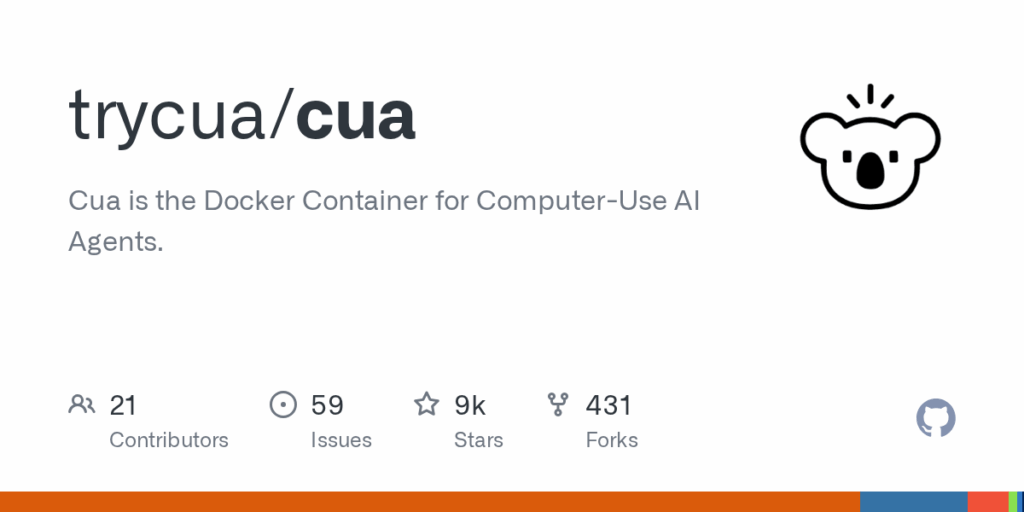cua
Basic Information
Cua is a platform and toolkit that lets developers build, run, and deploy Computer‚ÄëUse Agents that control full operating systems inside virtual containers. It provides both a Computer SDK for programmatic control of Windows, Linux, and macOS virtual machines and an Agent SDK for running and composing AI agents that perform GUI interactions and OS tasks. The project is designed to standardize agent outputs and agent-to‚Äëcomputer interactions so models and tools can be swapped, tested, and deployed locally or to the cloud. The repository includes multiple modules and integrations for VM lifecycle management, agent orchestration, server components, and examples showing how to automate UI actions and capture screenshots. It is open source under the MIT License and targets developers and researchers working on agents that must interact with real desktop environments.








